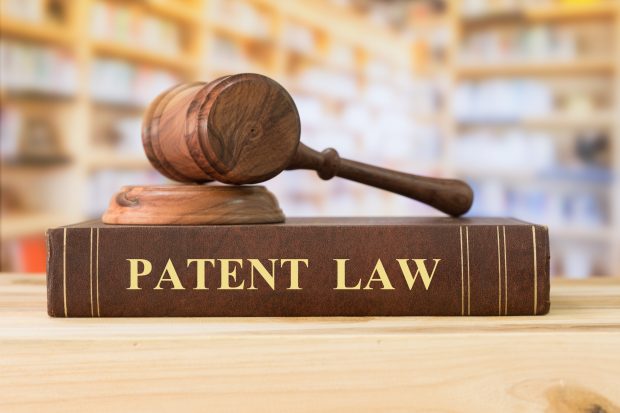
The
overwhelming
majority
of
patent
cases
settle
at
some
point
in
their
lifespan.
Some
settle
quickly
after
a
case
is
filed,
while
others
do
not
reach
their
denouement
until
after
a
trip
up
to
the
Federal
Circuit
or
even
the
Supreme
Court.
No
matter
how
convoluted
a
path
a
patent
case
may
take
to
its
final
destination,
the
reality
is
that
a
negotiated
resolution,
rather
than
with
an
executed
judgment,
is
almost
always
how
a
case
ends.
Considering
the
importance
of
settlement
to
patent
cases,
you
would
think
that
law
firms
would
invest
as
much
into
training
their
less
experienced
attorneys
on
the
set
of
skills
necessary
to
achieve
good
client
outcomes
at
settlement
as
they
do
in
training
up-and-coming
litigators
on
how
to
take
a
deposition,
for
example.
Maybe
some
firms
do,
but
speaking
from
personal
experience,
in
order
to
make
partner
in
IP
litigation
at
my
prior
Biglaw
firm,
I
needed
to
undergo
rigorous
trial
and
litigation
skills
training.
Settlement
training?
That
was
for
figuring
out
on
your
own,
assuming
that
you
were
lucky
enough
to
get
assigned
a
settlement
agreement
to
draft
and
negotiate
in
the
first
place.
Despite
a
lack
of
formal
training
in
the
settlement
arts
as
associates
—
a
program
for
which
should
be
considered
by
firms
with
robust
patent
litigation
practices,
which
necessarily
also
have
robust
patent
litigation
settlement
practices,
even
if
no
one
thinks
of
it
that
way
—
we
can
assume
that
most
experienced
patent
litigators
learn
how
to
get
a
settlement
closed
over
the
course
of
their
careers.
In
most
patent
litigation
scenarios,
all
it
takes
is
a
straightforward
settlement
and
license
agreement,
where
most
of
the
negotiation
is
centered
on
the
amount
of
money
changing
hands
and
payment
terms,
if
any
is
at
all.
There
are
of
course
more
demanding
situations,
where
licensing
specialists
may
be
brought
in
to
assist
the
litigation
team
in
an
effort
to
protect
the
client’s
interests
to
their
maximum.
Most
cases
do
not
present
the
complexity
or
importance
to
justify
that
type
of
expense,
however,
which
means
that
in
practice
most
settlement
agreements
are
handled
by
the
litigation
team.
In
practice,
that
often
means
a
more
junior
member
is
given
the
task
of
updating
a
previously
used
agreement
to
at
least
serve
at
the
first
turn
of
a
document
that
will
be
sent
to
the
other
side
for
comment
and
revision.
It
is
understandable,
particularly
in
situations
where
a
case
has
not
yet
gotten
off
the
ground
or
where
many
years
of
intense
fighting
have
fizzled
out
with
clients
willing
to
hang
up
their
gloves,
that
there
can
be
a
distinct
lack
of
focus
given
to
something
as
prosaic
as
an
initial
draft
of
a
settlement
agreement.
That
is
particularly
true
where
the
expectation
is
that
the
initial
draft
will
be
sent
back
with
voluminous
comments
and
redlines
from
the
other
side,
even
in
those
rare
cases
where
all
the
key
terms
are
agreed
to
before
that
first
draft
is
sent.
Sometimes,
that
lack
of
focus
can
come
back
to
create
problems,
as
a
recent
District
of
Delaware
decision
points
out
—
to
the
chagrin
of
a
branded
pharmaceutical
company
that
sought
to
enforce
a
settlement
agreement
that
they
had
thought
was
a
done
deal.
(As
usual,
there
is
some
great
commentary
on
the
decision
over
at
the
IP/DE
blog,
which
I
recommend.)
Besides
providing
interesting
fodder
for
the
next
episode
of
“Patent
Settlements
Gone
Wrong,”
a
few
interesting
tidbits
in
the
decision
are
worthy
of
attention.
To
start,
it
was
a
real
pleasure
to
read
a
decision
in
a
patent
case
that
had
hyperlinks
to
both
the
briefing
leading
up
to
the
motion
as
well
as
to
cited
cases
and
statutes.
It
makes
for
a
more
immersive
review
experience
and
I
hope
that
other
judges
decide
to
do
likewise
when
issuing
decisions
of
their
own.
That
aside,
it
was
also
a
curious
artifact
of
the
Hatch-Waxman
litigation
regime
that
you
had
the
plaintiff
here
pushing
to
enforce
the
purported
settlement
agreement
—
in
effect
arguing
that
its
claim
should
be
dropped
in
favor
of
a
negotiated
resolution.
(While
I
have
been
in
the
position
of
representing
a
patent
owner
trying
to
get
a
recalcitrant
defendant
to
finalize
a
settlement
agreement
after
they
had
agreed
to
a
licensing
payment,
it
is
also
true
that
defendants
sometimes
find
themselves
trying
to
get
a
plaintiff
to
follow
through
on
a
proffered
deal.)
Here,
settlement
discussions
started
about
a
month
before
the
complaint
was
even
filed,
lasting
about
six
months
before
breaking
down
on
the
eve
of
execution
of
the
negotiated
agreement.
Upset
about
the
deal
flying
away,
the
plaintiff
moved
to
enforce
the
settlement
agreement,
on
the
grounds
that
but
for
the
signatures,
the
parties
had
come
to
a
meeting
of
the
minds
on
all
the
relevant
terms.
But
the
court
rejected
that
reasoning,
pointing
to
the
fact
that
a
clause
explicitly
stating
signatures
were
necessary
for
a
final
agreement
had
been
included
from
the
very
first
turn
of
the
settlement
agreement
draft.
Add
in
that
the
initial
draft
was
a
“template”
provided
by
the
plaintiff
themselves,
as
well
as
the
fact
that
neither
party
had
actively
negotiated
any
changes
to
that
provision,
and
it
was
clear
to
the
court
that
both
sides
knew
“that
signatures
were
a
necessary
condition
to
settling
the
matter.”
Boilerplate
language
from
a
template?
Enough
to
sink
a
deal
that
might
have
prevented
many
years
and
dollars
that
have
and
will
be
invested
in
litigation.
Ultimately,
this
decision
highlights
the
continued
importance
of
making
sure
that
each
and
every
draft
of
a
settlement
agreement
is
reviewed
thoroughly
before
being
shared
with
the
other
side.
At
the
same
time,
the
decision
also
reminds
us
that
even
though
the
temperature
around
settlement
negotiations
is
often
much
lower
than
what
we
often
see
in
active
litigation,
everyone
involved
in
settlement
talks
must
bring
their
utmost
attention
and
focus
to
that
effort.
Because
mistakes
happen,
even
to
sophisticated
companies
represented
by
sophisticated
and
able
counsel, and
we
all
have
been
reminded
that
the
deal
may
not
be
done
until
everyone
signs
on
the
dotted
line.
Please
feel
free
to
send
comments
or
questions
to
me
at
[email protected]
or
via
Twitter:
@gkroub.
Any
topic
suggestions
or
thoughts
are
most
welcome.
Gaston
Kroub
lives
in
Brooklyn
and
is
a
founding
partner
of
Kroub,
Silbersher
&
Kolmykov
PLLC,
an
intellectual
property
litigation
boutique,
and Markman
Advisors
LLC,
a
leading
consultancy
on
patent
issues
for
the
investment
community.
Gaston’s
practice
focuses
on
intellectual
property
litigation
and
related
counseling,
with
a
strong
focus
on
patent
matters.
You
can
reach
him
at [email protected] or
follow
him
on
Twitter: @gkroub.













